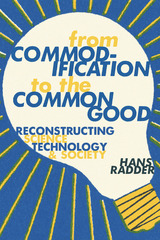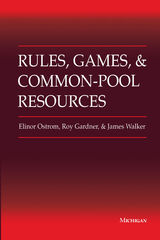

-Todd Sandler, Robert R. and Katheryn A. Dockson Professor of International Relations & Economics, University of Southern California
"Boyer and Bobrow's well-written, data-rich analysis of such pressing issues as development assistance, debt management, UN peacekeeping, and environmental protection makes Defensive Internationalism a highly original and provocative contribution to the study of global governance."
-Yale H. Ferguson, Co-Director, Center for Global Change and Governance, Rutgers University
In this pathbreaking study, authors Davis B. Bobrow and Mark A. Boyer argue for "muted optimism" about the future of international cooperation. Leaders of a growing movement that integrates constructivism into traditional international studies concepts and methods, Bobrow and Boyer analyze four key international issues: development cooperation, debt management, peacekeeping operations, and environmental affairs. Their approach integrates elements of public goods theory, identity theory, new institutionalism, and rational choice. Defensive Internationalism is a well-written, creative and coherent synthesis of ideas that have up to now been considered irreconcilable. It is appropriate for upper-level undergraduate and graduate students in international relations, conflict studies, and political economy, and promises to become a foundational work in its field.
Davis B. Bobrow is Professor of Public and International Affairs and Political Science at the University of Pittsburgh.
Mark A. Boyer is Professor of Political Science at the University of Connecticut.

The commodification of science—often identified with commercialization, or the selling of expertise and research results and the “capitalization of knowledge” in academia and beyond—has been investigated as a threat to the autonomy of science and academic culture and criticized for undermining the social responsibility of modern science. In From Commodification to the Common Good, Hans Radder revisits the commodification of the sciences from a philosophical perspective to focus instead on a potential alternative, the notion of public-interest science. Scientific knowledge, he argues, constitutes a common good only if it serves those affected by the issues at stake, irrespective of commercial gain. Scrutinizing the theory and practices of scientific and technological patenting, Radder challenges the legitimacy of commercial monopolies and the private appropriation and exploitation of research results. His book invites us to reevaluate established laws and to question doctrines and practices that may impede or even prohibit scientific research and social progress so that we might achieve real and significant transformations in service of the common good.

READERS
Browse our collection.
PUBLISHERS
See BiblioVault's publisher services.
STUDENT SERVICES
Files for college accessibility offices.
UChicago Accessibility Resources
home | accessibility | search | about | contact us
BiblioVault ® 2001 - 2024
The University of Chicago Press









